Last week saw the release of AlRawabi School for Girls, Netflix’s latest Arabic original series. Created by Tima Shomali and Shirin Kamal, AlRawabi School for Girls is a six-episode limited series that follows a group of high school girls in Amman, Jordan as they plot their revenge on a trio of bullies at their school.
The show, which stars Andria Tayeh, Joanna Arida, Noor Taher, Rakeen Saad, Salsabiela and Yara Mustafa, has attracted the attention of viewers not only in the Middle East, but across the 190 countries in which it was released.
Egyptian Streets published its review of the show last week, noting it is a must-watch for its ability to tell a compelling and frustrating tale that provides timely commentary on bullying, women’s rights, psychology, religion, and relationships.
Though, by the end, you may or may not be surprised to discover the looming presence over the otherwise “all girls” show: the patriarchy.
Note: Stop reading here if you do not want any spoilers. The below discusses key plot points of the show, including elements of the final episode.
As noted in Egyptian Streets’ review of the show, its social and cultural nuances will definitely resonate with Arabs. This is especially the case in relation to the ending: for Arabs, it is clear, but for Westerners the ending remains ambiguous.
In the final episode of the show, after a series of successes and missteps exacting revenge on her bullies, Mariam (Andria Tayeh) sends a message to the brother of her bully Layan (Noor Al Taher) informing him that Layan skipped school to be with her boyfriend. Mariam also sends the brother, Hazem, a location pin, leading him to Layan’s boyfriend’s ‘bachelor pad’.
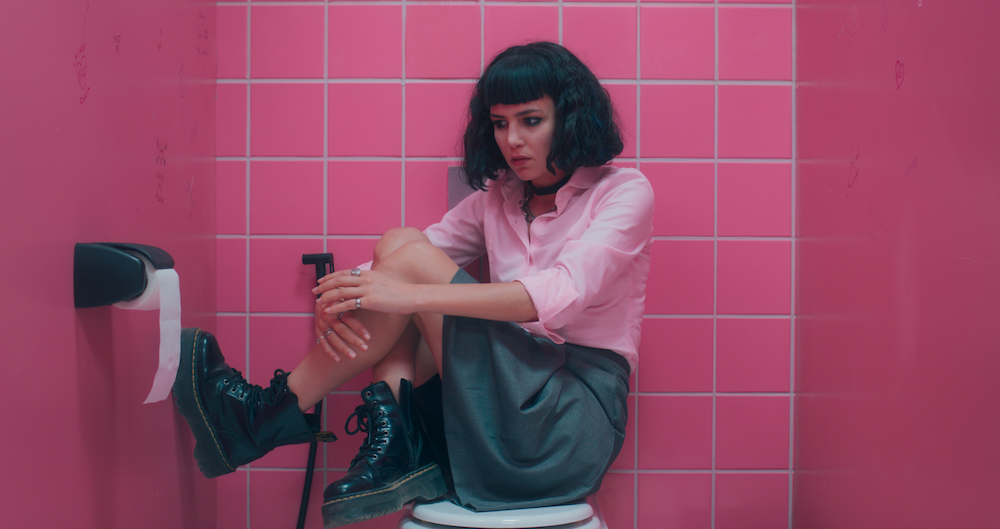
Mariam’s friends, who had helped her and encouraged her to get revenge, were concerned Mariam had gone too far. These concerns were heightened when Layan’s friend Rania (Joanna Arida) warned them that if Layan’s family discovered her secret relationship, her fate would be a lot worse than a black eye (which Rania suffered at the hands of her father after being caught sneaking out to a club during an off-site school trip). Rania got away ‘easy’, Layan’s fate would be much worse.
Despite urging Mariam not to send the message notifying Hazem of Layan’s location, Mariam decides to do so regardless; she had been a victim of terrible and malicious acts carried out by Layan that had not only made her an outcast at school, but also at home where she was seen as subversive by her parents and forced to go to therapy.
The scenes that follow see Hazem racing to Layan’s location; weaving in a rush through traffic in his truck, pulling out a gun from the dashboard and eventually banging on the front door of Layan’s boyfriend Laith (Ahmed Hamdan).
Eventually, Hazem breaks into Laith’s bachelor pad and points his gun at Layan with tears streaming down his face. Layan promises him nothing ‘happened’ (read: sexual) between her and Laith and that they were simply watching a movie and eating popcorn. She begs him to put the gun down as Hazem debates the impact Layan being caught will have on his family’s ‘honour’ and what people will now say about his family.
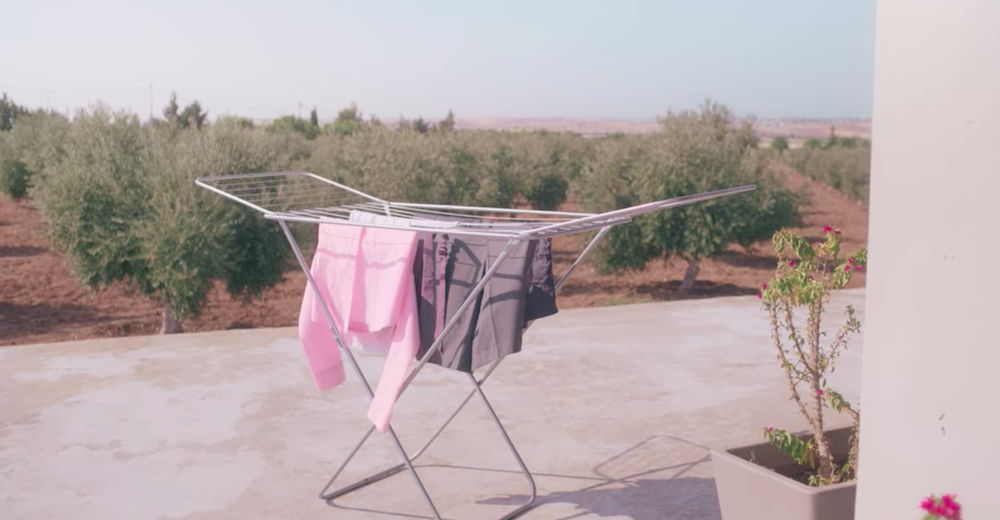
The camera pans outside the bachelor pad and a gunshot rings out as the camera settles on the drying rack holding Layan’s pink uniform, delicately drifting in the breeze. Silence follows as it cuts to flashbacks of Layan in joyful moments, singing and at ease. This arguably represents a striking juxtaposition between what she is and what has been imposed on her as a young girl. The uniform itself could embody the conflicting and imposed identities on girls and women as either hyper-sexual, or pure and innocent, both of which contribute to Layan’s untimely tragedy.
For Arab viewers, the ending they feared occurs: Layan becomes the victim of an ‘honour killing’.
The showrunners seem to intentionally mismatch the focus of blame of her death to represent just how pervasive the patriarchy is on the girls’ lived realities. As Mariam struts victoriously through the school, knowing that she had supposedly unleashed Layan’s brother on her; Rania, Dina, and Noaf stare at her in terror and defeat. But had they been defeated by Mariam? She didn’t actually pull the trigger, after all.
Even indirectly, accountability is extremely important both in what Layan did to Mariam as well as Mariam’s ultimate role in Layan’s fate. The intentional focus on a seemingly malicious and victorious Mariam, however, still highlights what has been ignored. Why does Layan’s brother get a free pass for taking her life?
SHAME AND HONOUR OVER A WOMAN’S LIFE
For many non-Arab (and particularly Western) viewers, including pop culture journalists and critics, the ending was an ‘open-ended’ set-up for a second season and ‘anything could have happened’. Many of these viewers believe the ending is a red-herring: surely a brother wouldn’t kill his sister over something so ‘trivial’, therefore it is obviously just a fake-out by Netflix and the show’s writers.
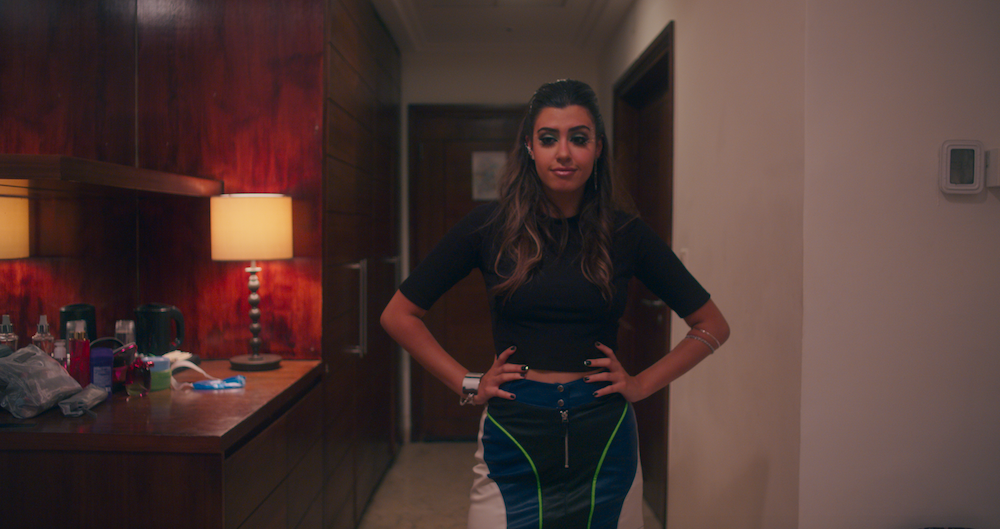
Yet, ‘honour’ is unfortunately not a ‘trivial’ matter for many families in Jordan and across the Middle East – and it is not necessarily linked to religion either. Though girls like Layan seem to have a ‘liberal’ upbringing, sex and relationships continue to be particularly taboo in the region, attracting conservatism that often does not match other areas of social and cultural progressiveness.
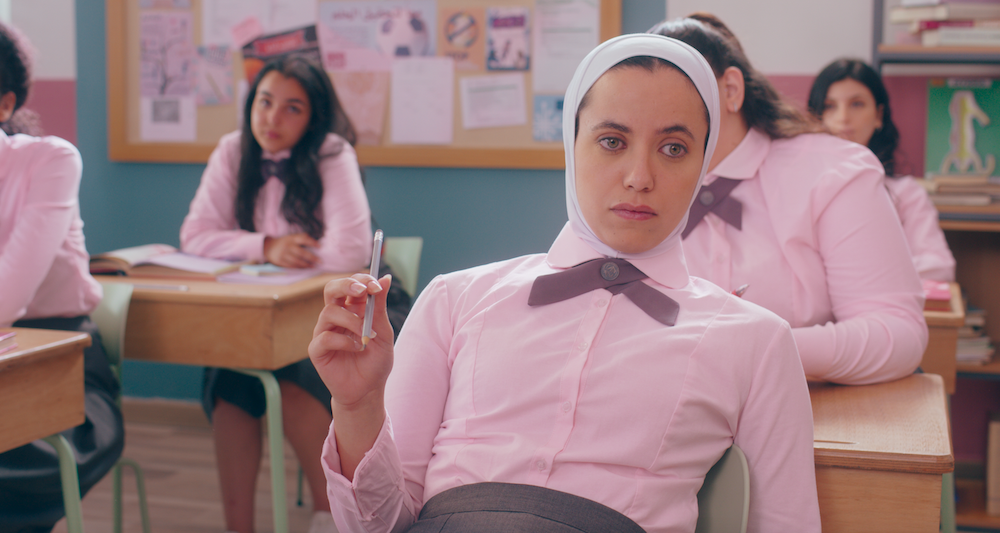
In an earlier episode of AlRawabi School for Girls, Roqayya (Salsabiela) was demonised by her family and her community for taking a selfie without her hijab on — despite the fact that most girls in her school did not wear the hijab. After removing her from the school, Roqayya’s mother scolds her for bringing shame to the family.
Meanwhile, Rania was beaten up by her alcoholic father for being caught past her school trip’s curfew. And throughout the show, many of the revenge plots centered around exposing others for their apparent ‘lack of honour’.
This is not a new phenomenon. In July 2020, a 40-year-old woman was brutally murdered by her father for having an affair with a man outside of wedlock. The honour killing sparked protests across Jordan and the region, with many demanding increased legal protections for women and an end to domestic violence and honour killings.
The July 2020 honour killing was not a rare occurrence either. On average, Human Rights Watch reports that at least 15 to 20 girls and women are killed in honour killings in Jordan each year, with many more cases going unreported.
In February 2021, a 20-year-old Jordanian woman’s Instagram video about the abuse she suffered at the hands of her brothers went viral after she fled Jordan. In the video, which has more than three million views, the woman (who is also named Layan) describes her abuse in detail and even reveals she had been facing death threats for having “dishonoured” her family.
In AlRawabi School for Girls, the character Layan also had brothers who are abusive of her agency. In one scene, Layan’s younger brother grabs her phone to see if she is texting a boy. Layan’s father even excuses this behaviour as an honourable gesture of “concern” from her brothers, one she should appreciate. Again, nothing new for many Arab viewers.
Since concern obviously didn’t translate into protecting Layan’s life, it becomes apparent that she is not the actual priority of concern, but rather her family’s reputation. The man bearing a gun was apparently no match for the young girl threatening her entire family’s “honour” with a few flirtatious messages.
In the end, one fact remains: Layan, Mariam, and the rest of the girls are children. While consequences for their horrific actions are important, the adults in the show failed to actually protect their kids whilst assuming the very concern that killed Layan.
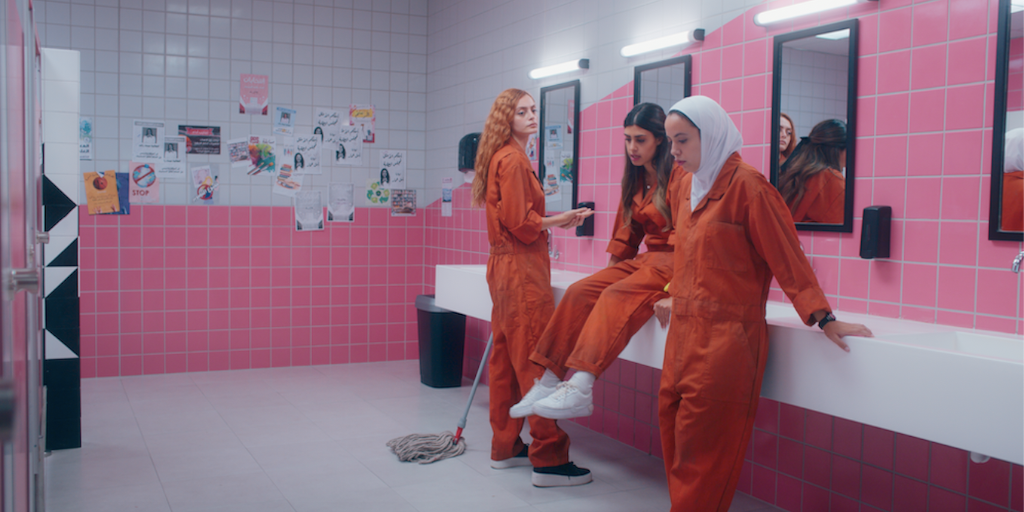
The campaign against honour killings and domestic violence remains alive in Jordan, with social media movements continuing to go viral resulting in increased pressure for change. Activists in Jordan have in particular been arguing for Article 340 of the Penal Code in Jordan to be abolished as it allows a reduced penalty if a male relative finds their female relative in an act of adultery.
It is important to note that the ending of the show shouldn’t be too alien to viewers beyond the Middle East. Domestic violence in countries like Australia and the United States of America continues to climb, with countless girls and women killed on a weekly basis at the hands of their family members and romantic partners. Meanwhile, honour killings remain a global issue, with more than 5,000 women and girls killed in countries as diverse as Canada, Israel, Sweden, Egypt and the United Kingdom.
AlRawabi School for Girls serves as an important and sobering reminder about the plight of honour killings, domestic violence and other forms of abuse towards women and girls. The writers did not explicitly depict Layan being shot as such an image didn’t need to be shown: it already is a reality.
Subscribe to the Egyptian Streets’ weekly newsletter! Catch up on the latest news, arts & culture headlines, exclusive features and more stories that matter, delivered straight to your inbox by clicking here.

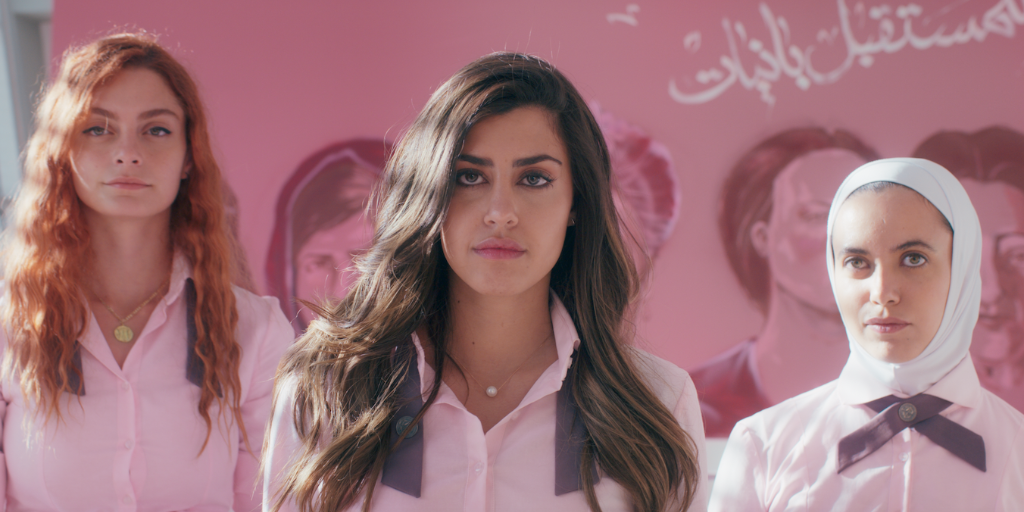


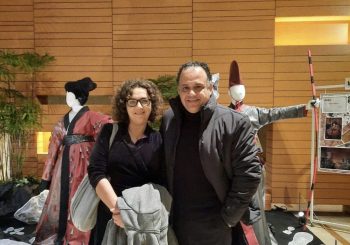
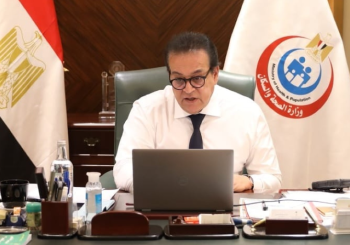

Comments (6)
[…] ‘AlRawabi School for Girls’ Ending Explained – A Shock for Some, Reality for Many […]
[…] المصدر by [author_name] كما تَجْدَرُ الأشارة بأن الموضوع الأصلي قد […]